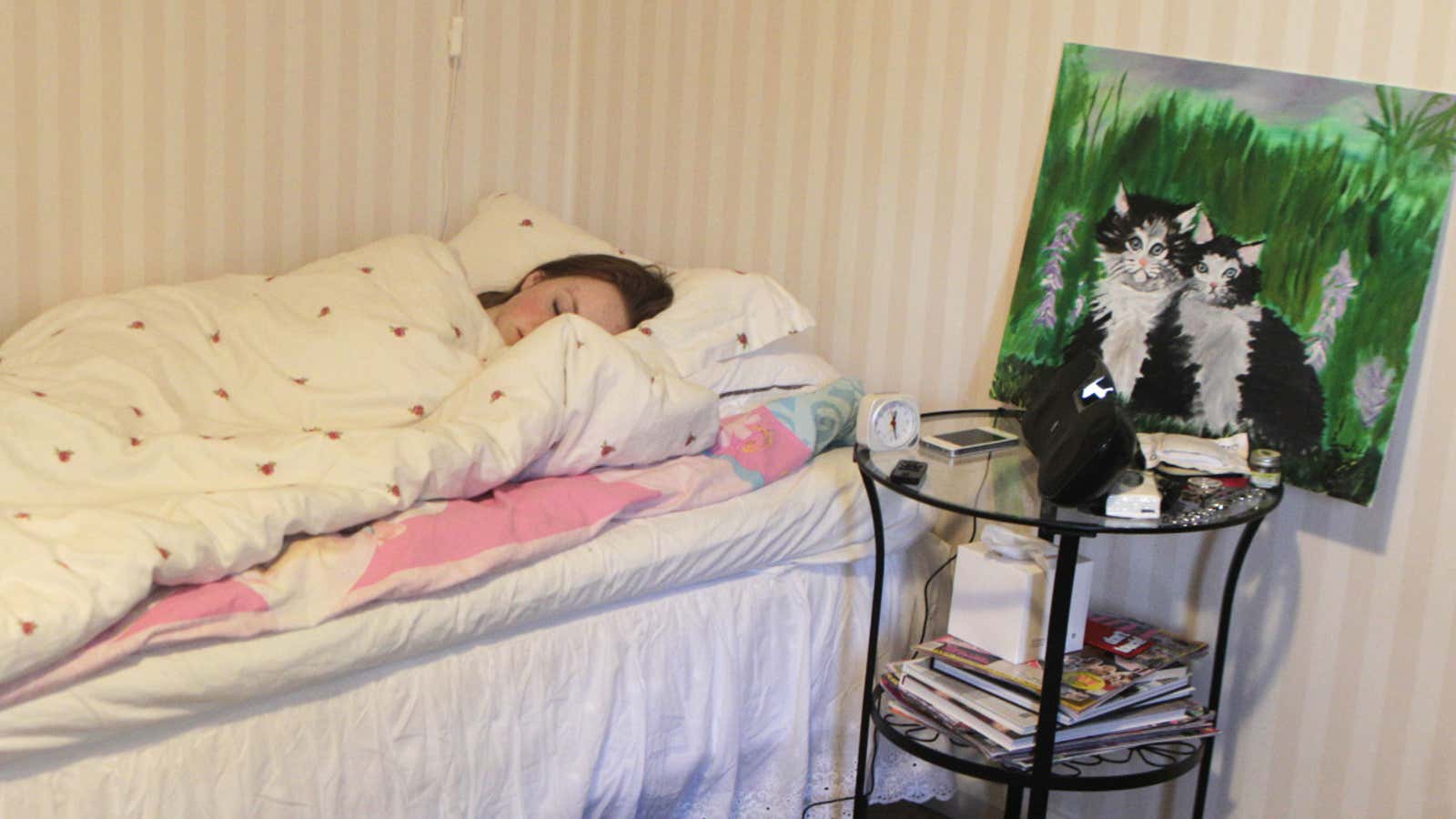Reports show that kids’ burgeoning screen use is hurting their imaginations, their ability to interact with each other and their attention spans.
It is also keeping them up at night.
According to a new meta-analysis from King’s College, London, the ubiquity of smartphones and tablets is reducing the amount of sleep kids get, the quality of that sleep and increasing daytime sleepiness. Even when devices are in kids’ room, but not in use, they hurt kids’ ability to get the sleep they need. The analysis looked at screen use among more than 125,000 kids.
Kids who use devices within 90 minutes of going to bed are twice as likely to have problems getting enough sleep, and face an estimated 40% increase in poorer sleep quality. Those who have devices, but do not use them within that 90-minute time period, are about 40% more likely to not get enough sleep (quantity) and 50% more likely not to sleep well (quality).
The findings from the second group—those who have smartphones or tablets but don’t use them before bed—are potentially more startling. Previous research has established a link between poor sleep and radiation or light from the devices. But these kids face something else.
“One possible theory might be increased continued mental stimulation preventing sleep,” said Ben Carter from King’s College. Social media never sleeps, so kids can’t either. “If the first thing you do in the morning and last thing you do at night is check your device, that’s linking to addiction behavior.”
According to the study, published in JAMA Pediatrics, 72% of all children and 89% of adolescents have al least one device in their sleep environment, with most used before bedtime. While it is unclear exactly how the devices upset sleep patterns, scientists have plenty of hypotheses:
- Kids fall asleep later or wake up more to use their smartphones, or devices
- Whatever content they are consuming stimulates them, making sleep harder
- The light from the screens affects circadian timing, physiological sleep and how awake the kids feel.
Sleep is critical to children’s wellbeing. Poor sleep is associated with a number of poor outcomes, from obesity to impaired mental function and psychiatric problems. There are even links to dementia. Parents of babies and toddlers frequently fret over how much sleep their children are getting or should get, and it is all but a US national pastime to bemoan the limited sleep teens are logging.
The study looked at research examining media use in kids aged six to 19 from 12 medical databases, between Jan. 1, 2011 and June 15, 2015 . A total of 467 studies were identified, with 20 being selected from Europe, North America, Asia and Australasia. The researchers did not include laptops, televisions or desktop computers, or studies including electromagnetic radiation.
Inadequate sleep quality was defined as less than 10 hours a night for children and less than nine hours for adolescents; poor sleep quality was having trouble falling asleep or staying asleep, or feeling overly tired, and being overly tired during the day as a result of not enough sleep or poor quality sleep.
“With the ever-growing popularity of portable media devices and their use in schools as a replacement for textbooks, the problem of poor sleep amongst children is likely to get worse,” Carter said. The study recommends that kids be screened for sleep problems, and that educators, healthcare professionals and parents be aware of the impact on sleep.
The study is the first systematic review to try and quantify the association of media use and sleep. It does not show causality and it is not clear whether kids are waking up and using their phones, or waking up because they want to use their devices.
